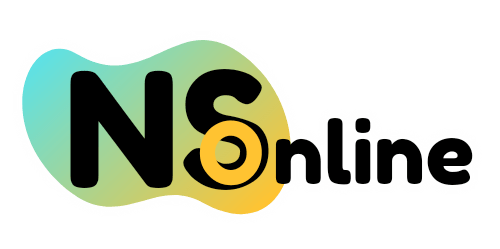
GATE 2023 Biotechnology
|| Eligibility | Syllabus | Paper & Answer Key | Cut-off ||
|| Online Classroom Program | Self-Paced Learning Program | One-to-One Classes ||
WHAT IS GATE EXAM?
The Graduate Aptitude Test in Engineering (GATE) is an examination that primarily tests the comprehensive understanding of various undergraduate subjects in engineering and science for admission into the Masters Program and Recruitment by some Public Sector Companies. GATE 2023 is conducted by the Indian Institute of Technology Kharagpur and six other Indian Institutes of Technology at Mumbai, Delhi, Guwahati, Kanpur, Chennai, Roorkee & Indian Institute of Science at Bengaluru on behalf of the National Coordination Board – GATE, The Department of Higher Education, Ministry of Education (MoE), Government of India.
Organising Institute for GATE 2023 is Indian Institute of Technology Kanpur*
- Eligibility
- Exam Pattern
- Syllabus
There is NO age limit to appear for GATE 2022 examination.
A candidate who is currently studying in the 3rd or higher years of any undergraduate degree program.
A candidate who has already completed any government-approved degree program in Engineering / Technology / Architecture / Science / Commerce / Arts is eligible for appearing in the GATE 2023 exam.
However, the candidates who possess certification from any of the professional societies must ensure that those examinations conducted by the societies are approved by MoE/AICTE/UGC/UPSC as equivalent to B.E. / B.Tech. / B.Arch. / B.Planning, etc.
Candidates who have obtained/are pursuing their qualifying degree from countries other than India: Must be currently in the 3rd or higher years or completed their Bachelor’s degree (duration: at least 3 years) in Engineering / Technology / Science / Arts / Commerce.
Particulars | Details |
| Examination Mode | Computer Based Test (CBT) |
| Duration | 3 Hours |
| Sections | General Aptitude (GA) + Candidate’s Selected Subject |
| Type of Questions | (a) Multiple Choice Questions (MCQ)
(b) Multiple Select Questions (MSQ)
(c) Numerical Answer Type (NAT) Questions
|
| Questions for testing these abilities |
|
| Number of Questions | 10 (GA) + 55 (Subject) = 65 Questions |
| Distribution of Marks for GATE |
Total: 100 Marks |
| Marking Scheme | Questions carry 1 mark and 2 marks |
| Negative Marking | For a wrong answer chosen in a MCQ, there will be a negative marking.
|
| |
Section 1: Engineering Mathematics
Linear Algebra: Matrices and determinants; Systems of linear equations; Eigen values and Eigen vectors.
Calculus: Limits, continuity and differentiability; Partial derivatives, maxima and minima; Sequences and series; Test for convergence.
Differential Equations: Linear and nonlinear first-order ODEs, higher-order ODEs with constant coefficients; Cauchy’s and Euler’s equations; Laplace transforms.
Probability and Statistics: Mean, median, mode and standard deviation; Random variables; Poisson, normal and binomial distributions; Correlation and regression analysis.
Numerical Methods: Solution of linear and nonlinear algebraic equations; Integration by trapezoidal and Simpson’s rule; Single-step method for differential equations.
Section 2: General Biology
Biochemistry: Biomolecules – structure and function; Biological membranes – structure, membrane channels and pumps, molecular motors, action potential and transport processes; Basic concepts and regulation of metabolism of carbohydrates, lipids, amino acids and nucleic acids; Photosynthesis, respiration and electron transport chain. Enzymes – Classification, catalytic and regulatory strategies; Enzyme kinetics – Michaelis-Menten equation; Enzyme inhibition – competitive, non-competitive and uncompetitive inhibition.
Microbiology: Bacterial classification and diversity; Microbial Ecology – microbes in marine, freshwater and terrestrial ecosystems; Microbial interactions; Viruses – structure and classification; Methods in microbiology; Microbial growth and nutrition; Nitrogen fixation; Microbial diseases and host-pathogen interactions; Antibiotics and antimicrobial resistance.
Immunology: Innate and adaptive immunity, humoral and cell mediated immunity; Antibody structure and function; Molecular basis of antibody diversity; T cell and B cell development; Antigen-antibody reaction; Complement; Primary and secondary lymphoid organs; Major histocompatibility complex (MHC); Antigen processing and presentation; Polyclonal and monoclonal antibody; Regulation of immune response; Immune tolerance; Hypersensitivity; Autoimmunity; Graft versus host reaction; Immunization and vaccines.
Section 3: Genetics, Cellular and Molecular Biology
Genetics and Evolutionary Biology: Mendelian inheritance; Gene interaction; Complementation; Linkage, recombination and chromosome mapping; Extra chromosomal inheritance; Microbial genetics – transformation, transduction and conjugation; Horizontal gene transfer and transposable elements; Chromosomal variation; Genetic disorders; Population genetics; Epigenetics; Selection and inheritance; Adaptive and neutral evolution; Genetic drift; Species and speciation.
Cell Biology: Prokaryotic and eukaryotic cell structure; Cell cycle and cell growth control; Cell-cell communication; Cell signaling and signal transduction; Post-translational modifications; Protein trafficking; Cell death and autophagy; Extra-cellular matrix.
Molecular Biology: Molecular structure of genes and chromosomes; Mutations and mutagenesis; Regulation of gene expression; Nucleic acid – replication, transcription, splicing, translation and their regulatory mechanisms; Non-coding and micro RNA; RNA interference; DNA damage and repair.
Section 4: Fundamentals of Biological Engineering
Engineering principles applied to biological systems: Material and energy balances for reactive and non-reactive systems; Recycle, bypass and purge processes; Stoichiometry of growth and product formation; Degree of reduction, electron balance, theoretical oxygen demand.
Classical thermodynamics and Bioenergetics: Laws of thermodynamics; Solution thermodynamics; Phase equilibria, reaction equilibria; Ligand binding; Membrane potential; Energetics of metabolic pathways, oxidation and reduction reactions.
Transport Processes: Newtonian and non-Newtonian fluids, fluid flow – laminar and turbulent; Mixing in bioreactors, mixing time; Molecular diffusion and film theory; Oxygen transfer and uptake in bioreactor, kLa and its measurement; Conductive and convective heat transfer, LMTD, overall heat transfer coefficient; Heat exchangers.
Section 5: Bioprocess Engineering and Process Biotechnology
Bioreaction engineering: Rate law, zero and first order kinetics; Ideal reactors – batch, mixed flow and plug flow; Enzyme immobilization, diffusion effects – Thiele modulus, effectiveness factor, Damkoehler number; Kinetics of cell growth, substrate utilization and product formation; Structured and unstructured models; Batch, fed-batch and continuous processes; Microbial and enzyme reactors; Optimization and scale up.
Upstream and Downstream Processing: Media formulation and optimization; Sterilization of air and media; Filtration – membrane filtration, ultrafiltration; Centrifugation – high speed and ultra; Cell disruption; Principles of chromatography – ion exchange, gel filtration, hydrophobic interaction, affinity, GC, HPLC and FPLC; Extraction, adsorption and drying.
Instrumentation and Process Control: Pressure, temperature and flow measurement devices; Valves; First order and second order systems; Feedback and feed forward control; Types of controllers – proportional, derivative and integral control, tuning of controllers.
Section 6: Plant, Animal and Microbial Biotechnology
Plants: Totipotency; Regeneration of plants; Plant growth regulators and elicitors; Tissue culture and cell suspension culture system – methodology, kinetics of growth and nutrient optimization; Production of secondary metabolites; Hairy root culture; Plant products of industrial importance; Artificial seeds; Somaclonal variation; Protoplast, protoplast fusion – somatic hybrid and cybrid; Transgenic plants – direct and indirect methods of gene transfer techniques; Selection marker and reporter gene; Plastid transformation.
Animals: Culture media composition and growth conditions; Animal cell and tissue preservation; Anchorage and non-anchorage dependent cell culture; Kinetics of cell growth; Micro & macro-carrier culture; Hybridoma technology; Stem cell technology; Animal cloning; Transgenic animals; Knock-out and knock-in animals.
Microbes: Production of biomass and primary/secondary metabolites – Biofuels, bioplastics, industrial enzymes, antibiotics; Large scale production and purification of recombinant proteins and metabolites; Clinical-, food- and industrial- microbiology; Screening strategies for new products.
Section 7: Recombinant DNA technology and Other Tools in Biotechnology
Recombinant DNA technology: Restriction and modification enzymes; Vectors – plasmids, bacteriophage and other viral vectors, cosmids, Ti plasmid, bacterial and yeast artificial chromosomes; Expression vectors; cDNA and genomic DNA library; Gene isolation and cloning, strategies for production of recombinant proteins; Transposons and gene targeting;
Molecular tools: Polymerase chain reaction; DNA/RNA labelling and sequencing; Southern and northern blotting; In-situ hybridization; DNA fingerprinting, RAPD, RFLP; Site-directed mutagenesis; Gene transfer technologies; CRISPR-Cas; Biosensing and biosensors.
Analytical tools: Principles of microscopy – light, electron, fluorescent and confocal; Principles of spectroscopy – UV, visible, CD, IR, fluorescence, FT-IR, MS, NMR; Electrophoresis; Micro-arrays; Enzymatic assays; Immunoassays – ELISA, RIA, immunohistochemistry; immunoblotting; Flow cytometry; Whole genome and ChIP sequencing.
Computational tools: Bioinformatics resources and search tools; Sequence and structure databases; Sequence analysis – sequence file formats, scoring matrices, alignment, phylogeny; Genomics, proteomics, metabolomics; Gene prediction; Functional annotation; Secondary structure and 3D structure prediction; Knowledge discovery in biochemical databases; Metagenomics; Metabolic engineering and systems biology.
STRATEGY TO FOLLOW
GATE 2023 Biotechnology Exam
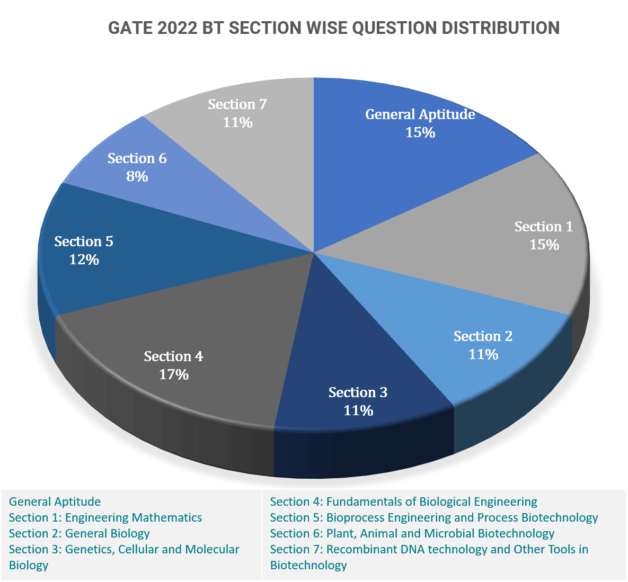 Although the number of students who give the GATE-BT exam is not so high, GATE aspirants found this exam not easy.
Although the number of students who give the GATE-BT exam is not so high, GATE aspirants found this exam not easy.
One of the important reasons behind this is the lack of interest in Mathematics and other technical subjects like Bioprocess Engineering. Unlike other exams, GATE focus on the analysis and synthesis ability of students and so subjects like Engineering Mathematics, Bioprocess Engineering etc. become important.
In the image, you can see the section-wise question distribution of the GATE 2022 BT paper. From this analysis, you will get an idea about the percentage portion acquired by these technical subjects as per the GATE syllabus.
Section 1 : Engineering Mathematics (15 %) + Section 4 & 5: Bioprocess Engineering (29%) + Gneral Aptituse (15%) = Total 59%
It is clear from the data, that numerical and analytical questions account for more than 60% of the paper. And the reason behind most people not being able to qualify for this exam is that biology students neglect these important subjects. But If you prepare these subjects for the GATE Exam, your chance to clear the GATE Exam improves substantially. Because these subjects help you stand out from the rest of the applicants.

There are two ways to start your preparation for the GATE 2023 Exam, which depend on how strong are your basics. If your basics are not so strong, start preparing one or two subjects at a time. But if you already have a strong base start covering the important topics that we have mentioned below.
MOST IMPORTANT TOPICS
- Section 1
- Section 2
- Section 3
- Section 4
- Section 5
- Section 6
- Section 7
Section 1: Engineering Mathematics
Calculus
- Limits, continuity and differentiability
- Sequences and series
- Partial derivatives, maxima and minima
Differential Equations
- Linear and nonlinear first-order ODEs
- Laplace transforms
Linear Algebra
- Matrices and determinants
- Eigen values and Eigen vectors
Numerical Methods
- Solution of linear and nonlinear algebraic equations
Probability and Statistics
- Mean, median, mode and standard deviation
- Poisson, normal and binomial distributions

Section 2: General Biology
Biochemistry
- Basic concepts and regulation of the metabolism of carbohydrates, lipids, amino acids and nucleic acids
- Photosynthesis, respiration and electron transport chain
- Biological membranes – structure, membrane channels and pumps, molecular motors, action potential and transport processes
- Biomolecules – structure and function
- Enzyme kinetics – Michaelis-Menten equation
- Enzyme inhibition – competitive, non-competitive and uncompetitive inhibition
Immunology
- ABO Blood Group
- Antibody structure and function
- Antigen processing and presentation
- Autoimmunity, Complement, Hypersensitivity, Immune tolerance
- Innate and adaptive immunity
- Major histocompatibility complex (MHC)
- Primary and secondary lymphoid organs
- Regulation of immune response
Microbiology
- Antibiotics and antimicrobial resistance
- Bacterial classification and diversity
- Microbial diseases and host-pathogen interactions
- Microbial growth and nutrition
- Nitrogen fixation
- Viruses – structure and classification

Section 3: Genetics, Cellular and Molecular Biology
Cell Biology
- Cell cycle and cell growth control
- Cell death and autophagy
- Cell signalling and signal transduction
- Prokaryotic and eukaryotic cell structure
Genetics and Evolutionary Biology
- Extra chromosomal inheritance
- Genetic disorders
- Horizontal gene transfer and transposable elements
- Linkage, recombination and chromosome mapping
- Mendelian inheritance
- Population genetics
Molecular Biology
- Molecular structure of genes and chromosomes
- Mutations and mutagenesis
- Non-coding and micro RNA
- Nucleic acid – replication, transcription, splicing, translation
- Regulation of gene expression
- Reverse Transcription
- RNA Interference

Section 4: Fundamentals of Biological Engineering
Classical thermodynamics and Bioenergetics
- Energetics of metabolic pathways
- Laws of thermodynamics
- Ligand binding; Membrane potential
- oxidation and reduction reactions
- Phase equilibria, reaction equilibria
Engineering principles
- Stoichiometry of growth and product formation
- Degree of reduction, electron balance, theoretical oxygen demand.
Transport Processes
- Conductive and convective heat transfer, LMTD, overall heat transfer coefficient
- Mixing in bioreactors, mixing time
- Newtonian and non-Newtonian fluids
- overall heat transfer coefficient
- Oxygen transfer and uptake in bioreactor, kLa and its measurement

Section 5: Bioprocess Engineering and Process Biotechnology
Bioreaction engineering
- Kinetics of cell growth, substrate utilization and product formation
- Batch, fed-batch and continuous processes
- Enzyme immobilization, diffusion effects – Thiele modulus, effectiveness factor, Damkoehler number
- Optimization and scale-up
Instrumentation and Process Control
- Feedback and feed forward control
- Types of controllers
- Pressure, temperature and flow measurement devices
Upstream and Downstream Processing
- Centrifugation – high speed and ultra
- Extraction, Adsorption, Drying
- Filtration – membrane filtration, ultrafiltration
- Principles of chromatography – ion exchange, gel filtration, hydrophobic interaction, affinity, GC, HPLC and FPLC
- Sterilization of air and media

Section 6: Plant, Animal and Microbial Biotechnology
Animal Biotechnology
- Culture media composition and growth conditions
- Hybridoma technology
- Knock-out and knock-in animals
- Stem cell technology
Microbial Biotechnology
- Clinical-, food- and industrial- microbiology
Plant Biotechnology
- Plant growth regulators and elicitors
- Plant products of industrial importance
- Production of secondary metabolites
- Protoplast, protoplast fusion – somatic hybrid and cybrid;
- Transgenic plants – direct and indirect methods of gene transfer techniques

Section 7: Recombinant DNA technology and Other Tools in Biotechnology
Recombinant DNA technology
- Restriction and modification enzymes
- Vectors – plasmids, bacteriophage and other viral vectors, cosmids, Ti plasmid, bacterial and yeast artificial chromosomes
Analytical tools
- Electrophoresis
- Principles of microscopy – light, electron, fluorescent and confocal;
- Principles of spectroscopy – UV, visible, CD, IR, fluorescence, FT-IR, MS, NMR
Molecular tools
- DNA/RNA labelling and sequencing
- Gene transfer technologies
- Polymerase chain reaction
- Southern and northern blotting
Computational Tools
- Phylogeny
- Sequence analysis – sequence file formats, scoring matrices, alignment, phylogeny
- Sequence and structure databases;
What GATE 2022 Rankers say...

Anisha Paul
It would not be possible for me to qualify Gate BT without the help of Sir. There is no one who can teach the whole unit of Bioprocess Engineering better than him. All the videos of all the units are of great quality, they have been taught in-depth, concisely in a very understandable manner.
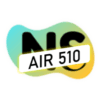
Abhishek Patel
I, Abhishek Patel, pursuing my degree in the field of Btech Biotechnology from Sardar Vallabhbhai Patel University of agriculture and technology Meerut, have secured All India Rank 510 in GATE 2022 in Biotechnology. I would like to thank God, my parents, my friends who supported me. Also, I would like to thank especially Naveen Kumar Sir, who helped me achieve this success. I had joined the YouTube channel ( ns_online_ education Also I would like to inform you that this channel is a game-changer for me because it helps me bioprocess which is the main portion of the syllabus of GATE ). To GATE aspirants, I would like to suggest that, attend the classes regularly, prepare crisp short notes covering everything and revise them at regular intervals strictly & all the best.
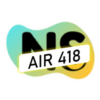
Dibyankar Barik
Thank you very much sir for providing free series of bioprocess engineering. Your videos are really helpful. I just watched once before the exam and my rank improved from 2712 to 418. Thanks a lot. I do not have enough words❤️.
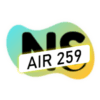
Sonali
Your bioprocess section was really helpful. Your bioprocess part helps me a lot. Other parts like maths & Immuno was also informative but they need to be in detail that will be more helpful.

Shreyansh mishra
I have scored AIR 259 in gate BIOTECHNOLOGY and it is all thanks to sir. I was very weak in the bioprocess section and all my concepts were cleared by sir.
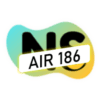
Arunava Poddar
I am extremely grateful to you as I would not have cleared GATE without the videos on bioprocess engineering, a subject that I feared the most. Your videos cleared all my doubts and your suggestions were extremely helpful during the exam. Thank you for delivering such wonderful free content continuously.
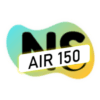
Sundar Kidambi
The bioprocess videos were very helpful. Especially on scale-up, O2 uptake rate. I hope that you will continue making more videos like these
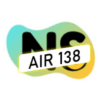
Astha karnwal
This platform has helped me a lot while preparing for my exam. I was very weak in bioprocess engineering. But through this platform, I was able to strengthen my concepts. Sir really had made wonders through his videos. He is a great teacher. And I owe him a lot for helping me throughout my preparation
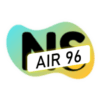
AIR 96 GATE 2022
The content provided by this platform is all that a candidate needs. During my preparation, I used the free available classes to clear concepts related to Industrial biotech specifically and it seriously helps me a lot. Not just the content but the notes were also simple and easy to learn. Even if you are starting from scratch then also their study material is really good to go for. Everything is very clean and clear. I am grateful to Naveen Sir for explaining tough topics in the easiest way possible, His way of explaining concepts is really good like you can get things in a go and after then you just have to read the entire content if possible otherwise if you can understand it once it’s done. As a student, as a learner, I always admire Professors who are genuine, authentic and help students throughout their preparation by making efforts like this. It’s worth spending time here.
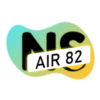
AIR 82
Hello. I’ll be honest while preparing for GATE I had no clue how to approach bioprocess engineering One of my friends suggested it and there was no going back. It helped me a lot and because of it I was able to secure AIR 82 in gate BT Thank you so much!! 😅
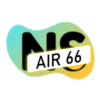
Sourami Biswas
The bioprocess lectures were very useful. It was very easy to understand. The numerical solutions were of great help.

Aditi Joshi
I had started preparing for GATE BT 2022 after getting the result of qualifying in GATE BT 2021. I covered all the units gradually that were present in Pathfinder. However, I was always a bit scared to start studying Bioprocess. I had the fear that I won’t be able to solve even one question. One of my seniors suggested NS Online on YouTube. I took up a notebook, took down notes of every class topic-wise, followed all advice given by sir. Solved Doran and attempted all the previous years’ questions as instructed. My AIR 52 is all thanks to his initiatives. I owe him my victory. Thank you so much!
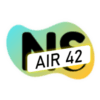
Sai Venkat
Thank you so much bro I got 42 rank in gate bt. Your videos helped me a lot in bioprocess engineering.
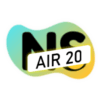
Debasmita
The lectures on this channel are very good and contain sufficient information for Gate. Also, the solutions to previous years’ questions are clearly provided. But, it would have been better if sir provides all lectures of bioprocess on youtube.
